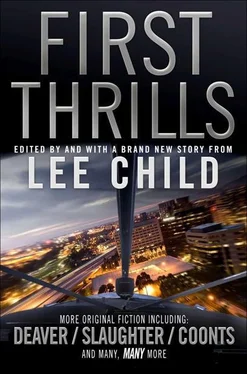Brent had been a prisoner a long time, and he told me that he hadn’t seen Johnny since Cold Harbor, and that he wasn’t sure if he wanted to see Johnny; he hadn’t known that his cousin had survived until we had received the news. “There’s something not-right with Johnny,” he told me.
The world, our world, or that of our country, was in a sad way, desperately sad. On Douglas Island, we had survived many years of the travelers who had come from far and wide to see the beauty of our little place, to ride over the sloping hills, to fish and boat and hunt. The war had barely begun before we had ceased to care who won or lost. Now, far too many people were struggling just to survive. The South was in chaos.
And so it was on the day that Johnny MacFarlane came home.
At first, nearly the whole town came out, two hundred odd of us came to the docks to meet the boat that had brought him home. A letter had been received the previous week, and we knew just when the schooner the Chesapeake was to bring him home. A kindly surgeon Johnny had come upon somewhere in his travels home after the surrender at Appomattox Court house had written that Johnny MacFarlane was not well, but friends were helping and would be sending him home with all possible speed, and they made arrangements for his travel.
Came the day. I was there with my father, eager, barely able to wait through the moments that would bring him back to me. From the widow’s walk of Johnny’s home, Janey Sue, his sister, had seen the schooner out on the horizon, and so we had gathered. Our town band was playing welcome songs, and it was no matter that he’d been one of the last battered soldiers of Lee’s army, we were one country now, and the band played for him, using all the songs we knew. People sang at the docks, and it was momentous. Federal song, fine. They played, “When Johnny Comes Marching Home.”
Except that the schooner stopped far out to sea, and it was strange, for even the music ended by the time Johnny rowed himself to shore in a small boat.
There was deep dockage at the island, and throughout the war, we’d been visited now and then by ships from both sides, and it was only the fact that we were, actually, so small and seeming to offer so little in support or importance that they all passed us by with little interest after docking. Sometimes, sailors wanted to loot the houses, but thanks to my father’s brilliance at hiding all assets, they did not stay. We had never imagined that any ship would eschew the fine docks and send Johnny home in a longboat, but so they did.
No matter.
Johnny was coming home.
And we watched as he rowed, and we waited until the little boat reached the docks, and then we all raced to him, descended upon him, really, tying up the rowboat, and helping him to the dock. His dear little sister, Janey Sue, immediately threw herself into his arms, nearly knocking him from the dock.
He hugged her in return; over her shoulder, he looked at me.
I was shocked.
Johnny and I had been together forever. We’d both been born and raised on the island. We had dreamed great visions for our future, and in those dreams, we would travel, but always return to our island. He wanted to be a teacher. Knowledge gave a man power and strength, he believed. Oh, Johnny had always been a thinker, and I had loved following the pro cesses in his mind.
But he’d been more than a thinker. Johnny had been a doer, a man who had always been strong, in a way, the typical Southern gentleman of his age. He could drink, ride, and shoot with the best of them, and also been able to repair any leak or damage done to Fairhaven, his estate on the island.
He was a man ahead of his time; he had joined the Confederate forces because he had believed in states rights. He had never believed in slavery-how could one human being, one soul, ever own another?-but he had also believed that change had to come about with laws that would help newly freed individuals make a living-survive, in short.
He had been… Johnny. Beautiful, such a handsome man. Smart, always careful in his thoughts and words. Strong, a man’s man, a woman’s man, in de pen dent, powerful, capable.
And now…
Johnny was a shell of the man he had been. My father had warned me-war changed people. It brought out their strengths and their weaknesses, but either way, it changed a man for good. We had heard that Lee’s troops had been starving, so his emaciated shape shouldn’t have shocked me. His pallor had come about, certainly, because of his illness.
But I had never expected the look in his eyes.
Once, they had been the blue of the sky on a summer’s day, as brilliant and vital as Johnny himself. Once… they had brightened easily with laughter. Once upon a time, they had looked at me in way that had awakened every raw and erotic thought in my mind, and stirred my heart to a thunderous pounding. Once…
They had been alive.
He looked at me now with recognition, but even the color in his eyes had changed. Now, they seemed so pale a blue as to be almost colorless.
It was as if… the color within them was dead. It was a ghost color, like the remnant of what had once been real and tangible, but now was nothing more than a memory.
I gave myself a shake. The town was welcoming him, but as he looked at me over his sister’s shoulder, he smiled slowly. A ghost of his old smile, but it was there, and suddenly, as dead as his eyes might appear, I saw that he had never forgotten what we had shared, that he loved me. I told myself that I was crazy. I rushed forward through the crowds, and he took me into his arms. Despite his fragile appearance, he swept me up in strong arms and swirled me around, and held me close.
“Now,” he whispered, “I have come home.”
I smiled at him; I was jubilant. Johnny was home.
Once he had been greeted by one and all, we helped him into the family carriage and headed to his home, Fairhaven. We were greeted at the door by Brambles, the butler, while in the foyer stood Brent, who had not come to the docks to meet Johnny. Brambles was all over himself, sputtering and crying as he greeted Johnny. Brent was more reserved, shaking his cousin’s hand. He was cordial, but visibly cool. Johnny was polite to everyone, saying all the right things.
When my father, Janey Sue, and Brambles led Johnny on into the dining room where a feast was awaiting his return, I held back, pulling on Brent’s arm. “You are-a horse’s ass!” I hissed to him. “What? Were you wishing that Johnny wouldn’t make it home? What’s the matter with you?”
I had grown up with Brent as well. He was lean and tall like Johnny, dark haired, handsome, light eyed, and he’d been bred with the same ethics. I couldn’t understand him being so bitter and churlish, not about Johnny coming home. I knew he’d taken some hard hits. He’d married a girl in Virginia, and she’d died before any of the family had even managed to meet her. To be sad and even bitter seemed to be one thing; to be so cold to his cousin seemed quite another.
Brent studied me. I couldn’t help but think that his eyes were green-not the beautiful blue Johnny’s had once been. And yet today…
They were alive. Deep set and steady, and somehow, wise beyond all that I had seen before.
“I loved Johnny like a brother,” he told me.
I frowned. “Then give him a hug and a real welcome, and be happy that he is home!” I told him.
He gripped my hands tightly. “Jules,” he said, his voice suddenly heated and passionate, “be careful. Be very careful, please.”
I jerked away from him, staring at him. “Be careful-of Johnny? Brent, you have lost your mind.”
I swept on into the dining room.
Mable, the cook, had gone all out. Johnny’s favorites were all on the table. There was ham, chicken, roasted lamb, cornbread, turnip greens, summer squash, tomatoes, fresh berries, and for dessert, sweet-potato-pecan pie.
Читать дальше












